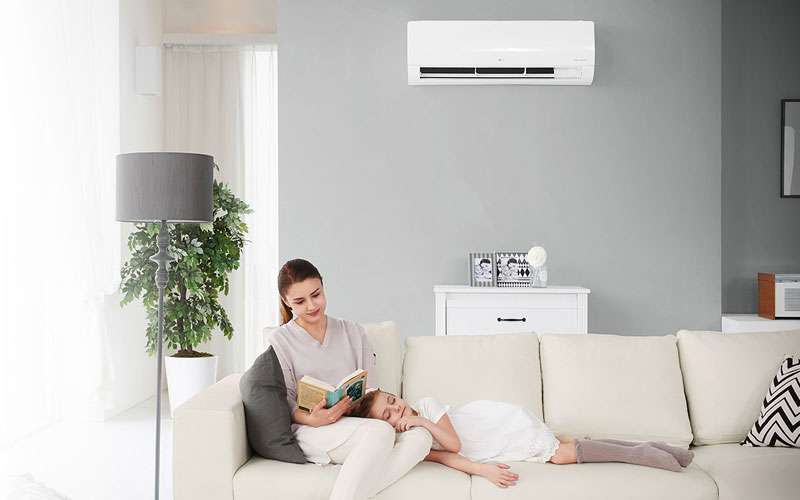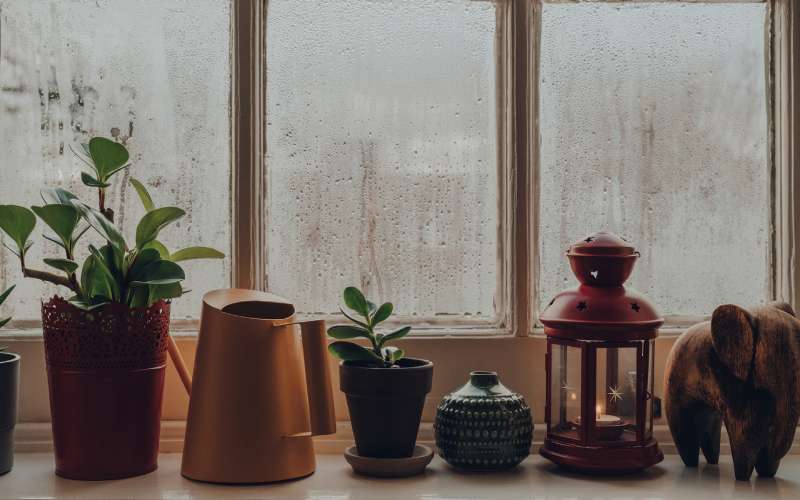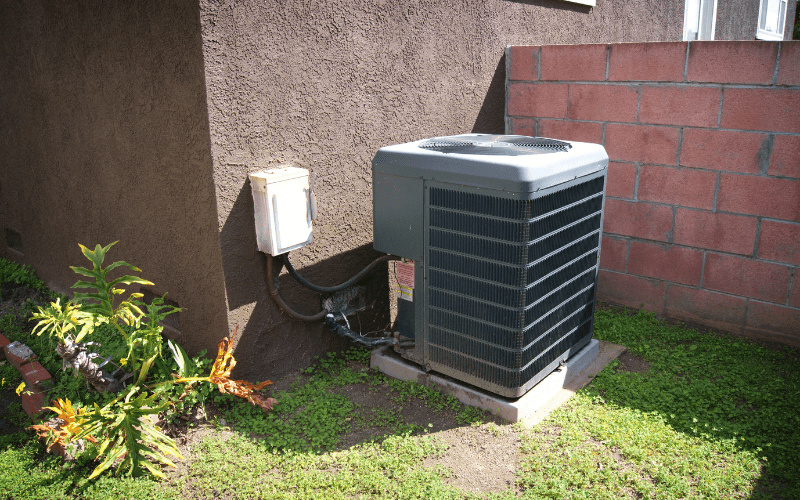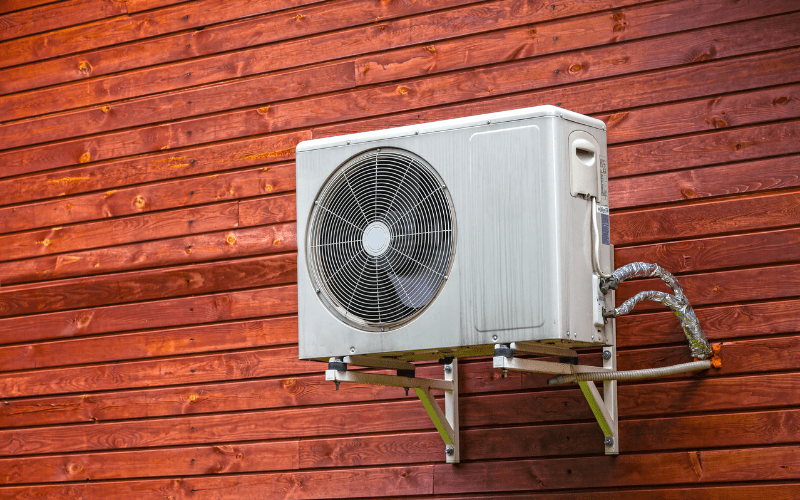Common Signs of Humidity Issues in Your House
1. Introduction: Understanding the Impact of Humidity on Your Home
Excess humidity can have a significant impact on your home’s comfort, structural integrity, and indoor air quality. When the moisture levels in your house rise beyond optimal levels, it can lead to a range of issues that affect both your health and the condition of your property. In this article, we will explore the common signs that indicate humidity problems in your house, discuss the causes behind them, and provide effective solutions to help you maintain a healthy indoor environment.
2. Common Signs of Humidity Issues in Your House
Identifying the signs of humidity problems is crucial for early intervention and preventing further damage. Here are some common indicators that your home may have excessive humidity levels:
2.1 Musty Odor and Dampness
One of the most noticeable signs of high humidity is a musty smell in your home. If you detect a persistent, unpleasant odor, it could indicate the presence of excess moisture. Additionally, you may notice a general feeling of dampness in the air and on surfaces.
2.2 Mold and Mildew Growth
Humidity creates the perfect breeding ground for mold and mildew. If you notice dark spots or patches on walls, ceilings, or other surfaces, it’s likely that you have a humidity issue. Mold and mildew can cause not only structural damage but also health problems, especially for individuals with allergies or respiratory conditions.

2.3 Condensation on Windows and Surfaces
When warm, moist air comes into contact with cooler surfaces, condensation occurs. If you frequently observe condensation on your windows, mirrors, or even walls, it’s a clear sign of high humidity levels in your home.
2.4 Peeling Wallpaper and Paint
Excessive moisture in the air can cause wallpaper and paint to peel or bubble. If you notice these signs, it’s likely due to elevated humidity levels. Peeling wallpaper and paint not only detract from the aesthetics of your home but also indicate underlying moisture problems that need to be addressed.
2.5 Wood Damage and Warping
Wood is highly sensitive to changes in humidity. In a humid environment, wood can absorb moisture, leading to warping, swelling, or even rotting. If you observe warped wooden furniture, creaking floors, or sticking doors, it may be a result of excess humidity.
2.6 Allergies and Respiratory Problems
High humidity can worsen existing respiratory conditions such as asthma and allergies. Dust mites and mold thrive in humid environments, triggering allergic reactions and respiratory issues. If you or your family members experience an increase in allergies or asthma symptoms when at home, humidity could be a contributing factor.
3. Causes of High Humidity in Your Home
Understanding the underlying causes of high humidity is essential for effectively addressing the issue. Here are some common factors that contribute to elevated humidity levels in homes:

3.1 Inadequate Ventilation
Poor ventilation can trap moisture inside your home, leading to an increase in humidity levels. Without proper airflow, moist air cannot escape, causing it to linger and create an environment conducive to mold growth and other humidity-related problems.
3.2 Water Leaks and Plumbing Issues
Leaking pipes, faucets, or roofs can introduce excess moisture into your home. Even minor leaks can contribute to significant humidity problems over time. Regularly check for and repair any water leaks to prevent further complications.
3.3 Improperly Sized or Faulty HVAC Systems
An improperly sized or malfunctioning HVAC (Heating, Ventilation, and Air Conditioning) system can contribute to humidity issues. If your system is unable to adequately dehumidify the air, it can lead to elevated moisture levels in your home. It’s crucial to ensure your HVAC system is properly maintained and functioning optimally.
3.4 Everyday Activities and Habits
Certain everyday activities can introduce moisture into your home. Cooking, showering, and even drying clothes indoors can increase humidity levels. While these activities are necessary, proper ventilation and moisture management are essential to prevent excess moisture buildup.
4. The Negative Effects of Excess Humidity on Your Health and Home
Excessive humidity can have detrimental effects on both your health and your home’s structural integrity. Understanding these effects can help you recognize the importance of addressing and controlling humidity levels in your living space.
4.1 Respiratory Issues and Allergies
High humidity provides an ideal environment for the growth of allergens, such as dust mites and mold. Increased exposure to these allergens can worsen respiratory conditions, trigger allergies, and lead to respiratory infections.
4.2 Structural Damage
Excess moisture can compromise the structural integrity of your home. It can cause wood to rot, weaken the foundation, and deteriorate building materials. Over time, this can lead to costly repairs and compromised safety.
4.3 Pest Infestations
Pests, such as termites and cockroaches, thrive in humid environments. High humidity levels can attract and sustain these unwanted guests, leading to infestations that are challenging to eradicate. Controlling humidity can help prevent pest problems.
4.4 Decreased Indoor Air Quality
Humidity directly affects indoor air quality. Excessive moisture can lead to the growth of mold, mildew, and bacteria, which can release harmful particles and volatile organic compounds (VOCs) into the air. This can result in unpleasant odors, allergies, and other health issues.

5. Effective Solutions to Control Humidity Levels
To address humidity issues and create a healthy indoor environment, consider implementing the following solutions:
5.1 Ensure Proper Ventilation
Proper ventilation is crucial in controlling humidity levels. Ensure that your home has adequate ventilation in areas prone to moisture, such as kitchens, bathrooms, and basements. Use exhaust fans or open windows to allow fresh air circulation and moisture removal.
5.2 Fix Water Leaks and Plumbing Problems
Regularly inspect your home for any water leaks or plumbing issues. Promptly fix any leaks to prevent excess moisture buildup and subsequent humidity problems.
5.3 Optimize Your HVAC System
Maintain and optimize your HVAC system to ensure it effectively regulates humidity levels. Consider investing in a dehumidifier or upgrading your HVAC system to a more advanced model that includes humidity control features.
5.4 Use Dehumidifiers
Dehumidifiers are highly effective in removing excess moisture from the air. They can be particularly beneficial in areas with high humidity levels or during humid seasons. Place dehumidifiers in strategic locations throughout your home to maintain optimal humidity levels.
5.5 Implement Moisture Absorbent Materials
Use moisture-absorbent materials such as silica gel packs, moisture-absorbing crystals, or charcoal bags in areas prone to moisture buildup. These materials can help reduce humidity levels and prevent mold and mildew growth.
5.6 Monitor and Maintain Ideal Humidity Levels
Invest in a hygrometer to monitor the humidity levels in your home. The ideal humidity range for indoor comfort and health is between 30% and 50%. Regularly check and adjust your efforts to maintain humidity within this range.
6. Conclusion
Excess humidity can lead to various problems in your home, ranging from structural damage to health issues. By recognizing the signs of high humidity and understanding its causes, you can take proactive measures to control and maintain optimal humidity levels. Implementing effective solutions such as proper ventilation, fixing water leaks, optimizing your HVAC system, using dehumidifiers, and monitoring humidity levels can help create a healthier, more comfortable living environment while protecting the integrity of your home. For expert assistance in addressing humidity issues, contact Prime Genius Heating, Air & Appliances at 916-400-0442. Remember, addressing humidity issues promptly is key to preventing further damage and ensuring a safe and pleasant living space.









3 Comments
Somebody essentially help to make significantly articles Id state This is the first time I frequented your web page and up to now I surprised with the research you made to make this actual post incredible Fantastic job
My brother suggested I might like this website He was totally right This post actually made my day You cannt imagine just how much time I had spent for this information Thanks
Fantastic beat ! I would like to apprentice while you amend your web site, how could i subscribe for a blog site? The account helped me a acceptable deal. I had been a little bit acquainted of this your broadcast offered bright clear concept